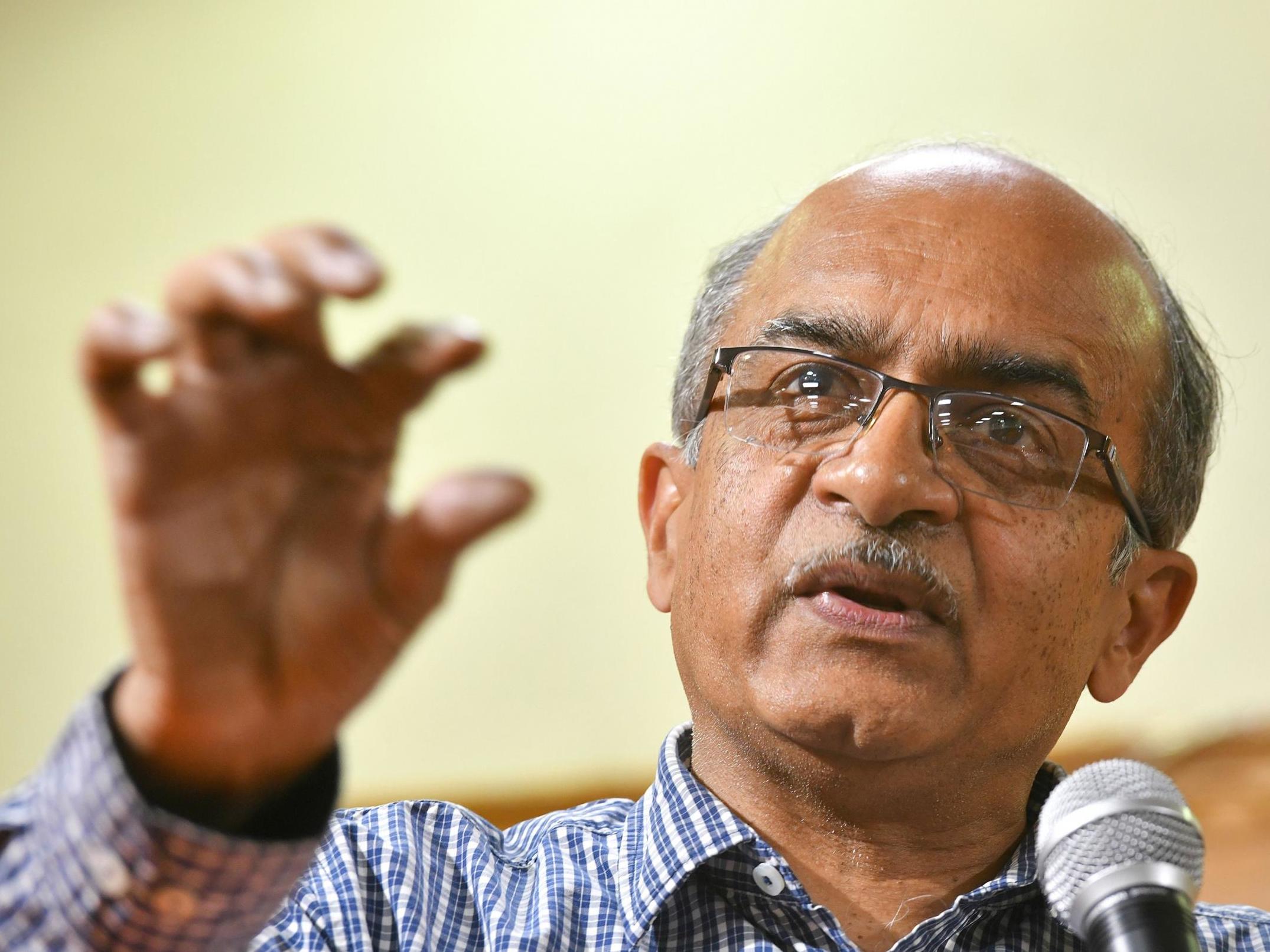From hate speech to free speech, India is failing to walk the social media tightrope
Online discourse in India is heading in a worrying direction, where only the powerful have their interests protected, writes Adam Withnall


In the past week, there have been two stories about social media in India that have provoked huge public reactions and should be cause for serious concern.
First, as we reported on Friday, the highly respected public interest lawyer and activist Prashant Bhushan was convicted of contempt for criticising the Supreme Court of India and its chief justice in a pair of tweets.
The posts themselves seemed relatively innocuous – one called out the chief justice for posing on a motorbike owned by a political figure while the court itself remained shut down due to coronavirus, and the other questioned the Supreme Court’s record in the past six years under successive chief justices.
Even as Bhushan has argued that these posts, as his “bona fide opinion”, entirely fall within the remit of freedom of speech, the court – led by a judge with whom Bhushan has clashed before – found he had mounted “scurrilous/malicious attacks” which sought to “shake … the foundation itself [of the judiciary]”.
More than 1,500 Indian lawyers have now signed a petition urging the Supreme Court to “take corrective steps to prevent miscarriage of justice” before Bhushan’s sentencing hearing – where he could face a prison term – on Thursday. They argue that “silencing” the legal community will “undermine the independence and ultimately the strength” of the apex court.
Separately, The Wall Street Journal reported that a senior executive at Facebook urged colleagues not to censor potential hate speech posts by members of the country’s ruling nationalist BJP party, or else risk “damag[ing] the company’s business prospects in the country”.
Facebook has denied any favouritism towards the ring-wing party, saying it prohibits hate speech and content inciting violence and enforces the rules globally “without regard to anyone’s political position or party affiliation”.
But the report has led to a slanging match along political lines, with the left-wing Congress demanding a parliamentary investigation and supporters and members of the BJP saying it is in fact right wing or “pro-India” content that is being censored, generally without providing details.
While neither incident should be blown out of proportion, they are worrying indicators of the direction of travel for social media in India – increasingly toxic places where only the powerful have their interests protected.
No country in the world has solved the problem of ending anonymous abuse and elevating the level of discourse online – indeed, it is an issue that defies national borders. But the bare minimum that can be expected from the authorities and platforms themselves is that they work to make it a level playing field for all.
Yours,
Adam Withnall
Asia editor
Join our commenting forum
Join thought-provoking conversations, follow other Independent readers and see their replies
Comments